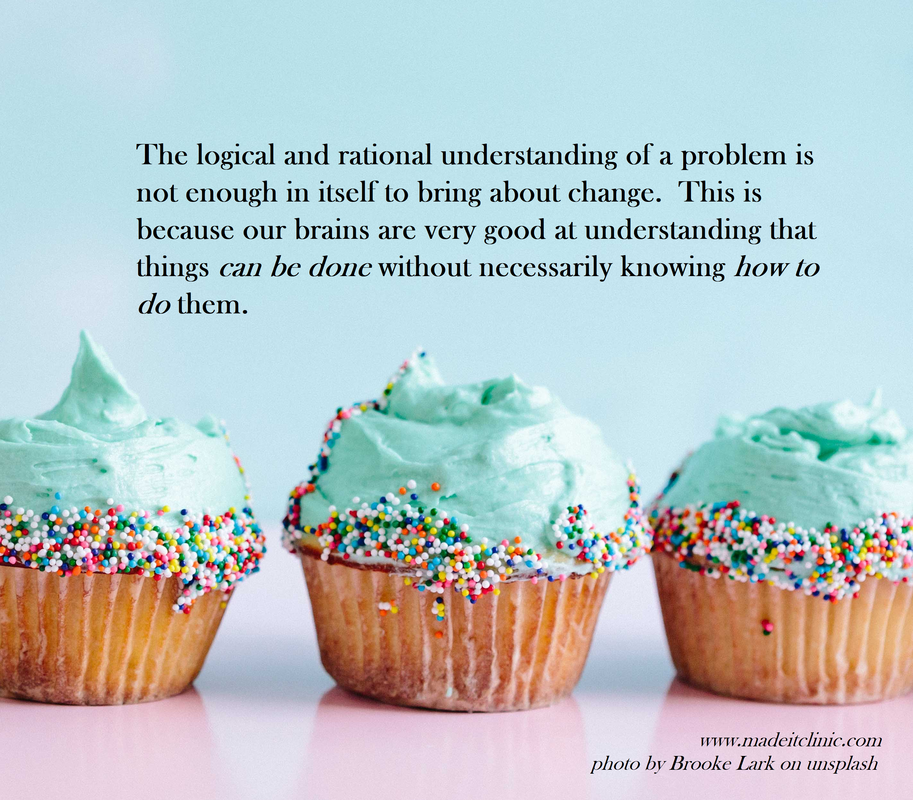|
The logical and rational understanding of a problem is not enough in itself to bring about change. This is because our brains are very good at understanding that things can be done without necessarily knowing how to do them.
I know that cars can be built. But can I build a car? Definitely not. Do I beat myself up about it? Not really. I don’t expect myself to be able to build a car because I’ve never learnt how to. I’m not even sure ‘build’ is the right word to use to describe the activity. However, we like to think we know more about ourselves than about building cars (or at least I like to), but that’s not always the case. Our behaviours are under the ‘contingency control of numerous external and internal stimuli’. This means that whether we are conscious of the control or not, there is an ever-flowing river of stuff that shapes our behaviours. This stuff includes the basics, like nutrition and energy level, our basic needs, and our natural preference for some things over others. It also involves complex stuff like our prior learning histories, our assignment of attentional resources, and our education. It includes things like where we are, the society we live in, the people that we are with, and maybe even what’s happening with the weather. The list of ‘stuff’ is endless. So if a problematic behaviour has occurred, it’s occurred for a reason. If it continues to occur, it’s being maintained by something. To say ‘just stop’ is an oversimplification of a very complicated system. If it was as easy as ‘just stopping’, the problematic behaviour would have already ceased. Forever. The ones that stay around are the ones we haven’t had enough experience in dealing with yet. Anyway, the issue is not about ‘just stopping’ a problematic behaviour, but to learn other things to do, and the only way to learn something is to try it out. Gathering some information can help you determine what strategies to try. There are a lot of books that can tell you what to do, but unless you have a go, you won’t know if their strategies work for you. If it doesn’t work, that’s ok, try something else. No strategy works 100% of the time; the most effective problem solvers have many strategies in their toolkit. Knowing this, the next time you or someone you know is having difficulty with changing problematic behaviour, rather than have the ‘just do it’ stance, consider changing your mind frame to ‘try something else’.
1 Comment
|
Archives
April 2021
CategoriesSocial Media |


 RSS Feed
RSS Feed